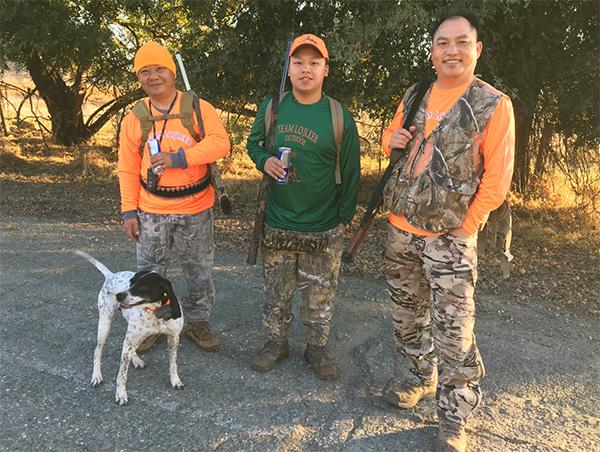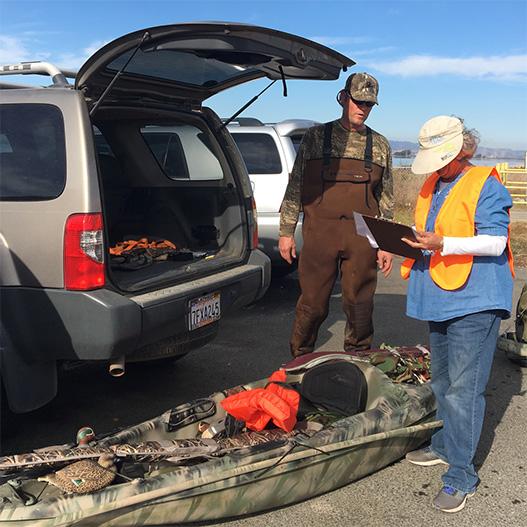
Virginia Matzek studies hunting as an ecosystem service
Matzek and research assistant collected data from hunters last fall and winter

Virginia Matzek has been working lately on research about hunting at ecological restoration sites. Virginia is generally interested in how restoration is useful and valuable to people. Improved recreational opportunities in restored sites have long been recognized as one of the ecosystem services that restoration provides to humans.
A few years ago, when Virginia was working on characterizing the carbon sequestered by newly restored floodplain forests on the Middle Sacramento River in northern California, she would run into turkey and dove hunters at her field plots. It got her thinking about recreational hunting as an ecosystem service, and how the value that hunters get from the sites is part of the economic payback for a public investment in habitat restoration. Hunters, after all, spend on ammunition, hunting gear, hotels, restaurants, and gasoline as they enjoy their hobby; more opportunity to hunt means more economic impact from hunters.
In 2019 she was awarded $236,377 from the Delta Stewardship Council to study the additional recreational value derived from tidal marsh restoration in North and South San Francisco Bay, and upland floodplain restoration along the Middle Sacramento. She and research assistant Liam Healey '19 spent the past fall and winter interviewing hundreds of hunters at intercept sites stretching from San Jose to Red Bluff. Now, in partnership with economist Frank Lupi of Michigan State University, they are analyzing the data and doing follow-up surveys by email (after a prematurely short end to the field sampling due to the COVID-19 pandemic).
"I've learned so much interacting with hunters this season," says Virginia. "I always knew that hunters contributed to conservation through stamps and licenses, and funding nonprofit organizations like Ducks Unlimited, but I hadn't appreciated the passion hunters have for the outdoors until now." She says that most hunters were helpful and cooperative with the study's small army of survey-takers, who spent hours in the early morning rain and cold waiting for hunters to emerge from the field.
Results from the study are expected early next year, and then Virginia will do outreach to share the findings with the hunter community, via chapter dinners and banquets for organizations like the California Waterfowl Association. She'll also give talks to wildlife officials from the California Department of Fish and Wildlife and its federal counterpart, the US Fish and Wildlife Service. "I think it's really important that we share back our results with the people who gave us their time to help us do this work, so that we can influence policy and management," she says. "It won't just end up in some musty journal somewhere."